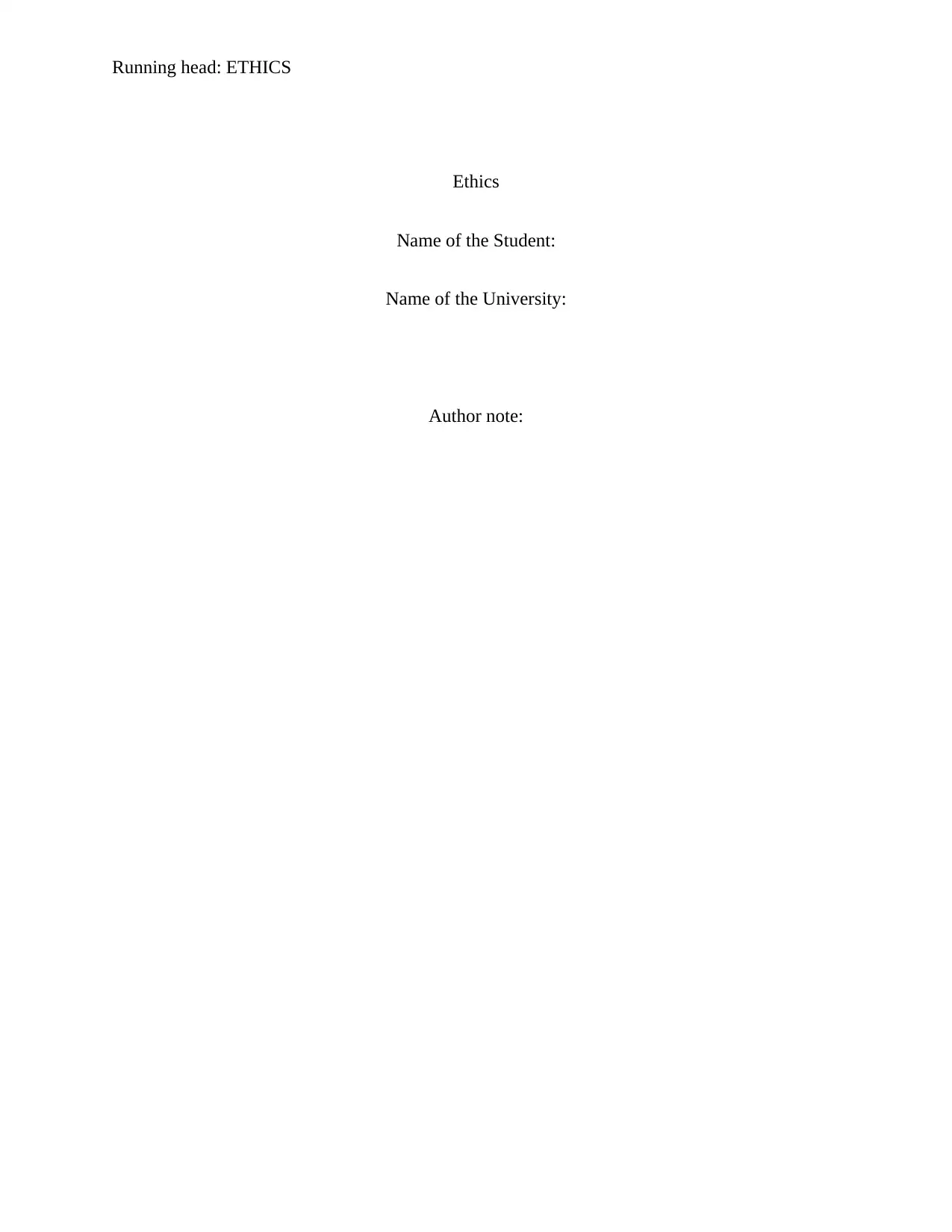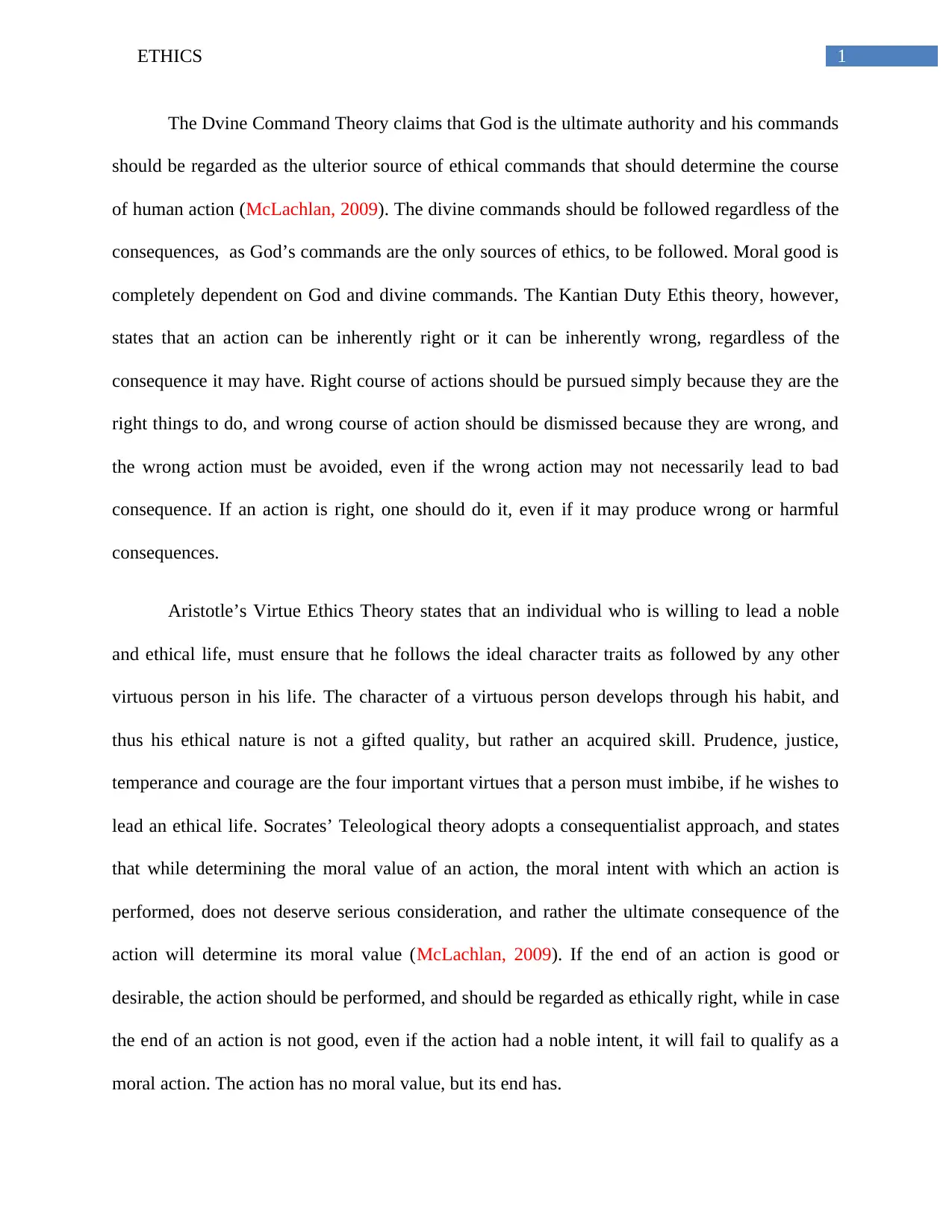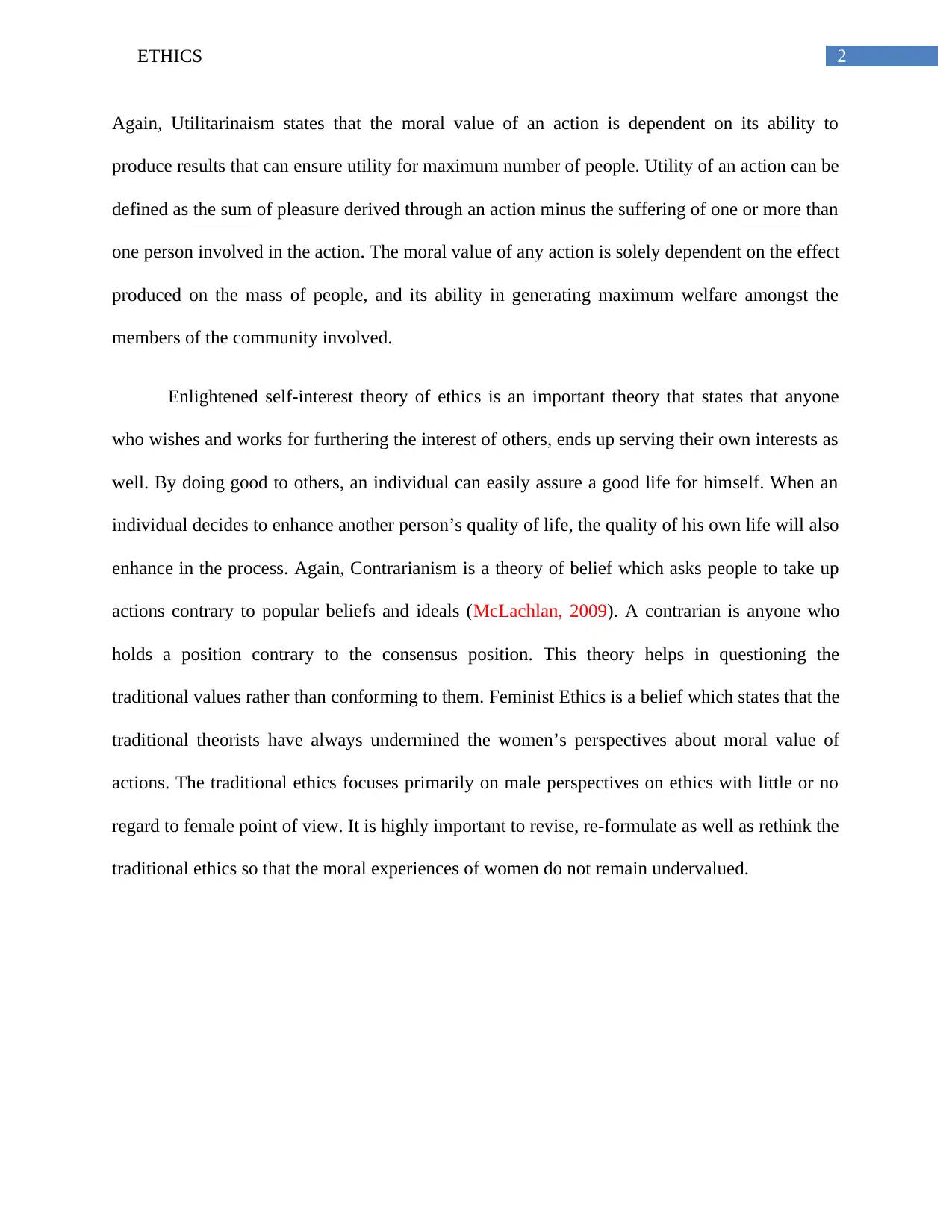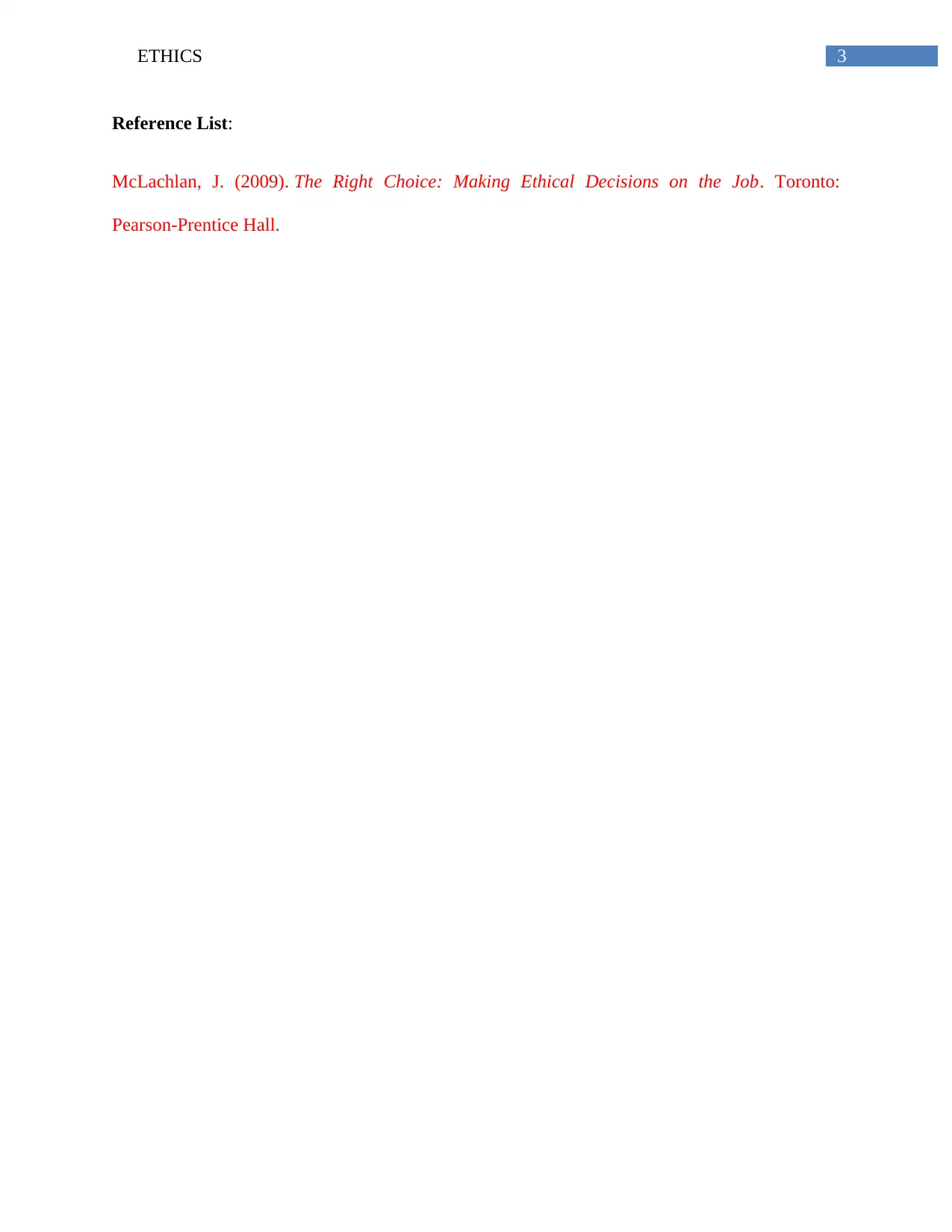A Comparative Study of Diverse Ethical Theories and Philosophies
VerifiedAdded on 2020/05/04
|4
|745
|179
Essay
AI Summary
This essay provides a concise overview of several prominent ethical theories. It begins by explaining the Divine Command Theory, which posits that morality stems from God's commands, and the Kantian Duty Ethics theory, which emphasizes the inherent rightness or wrongness of actions irrespective of their consequences. The essay then explores Aristotle's Virtue Ethics, highlighting the importance of developing virtuous character traits. Socrates' Teleological theory, focusing on the consequences of actions, is also discussed, along with Utilitarianism, which prioritizes actions that maximize overall utility. Additionally, the essay touches upon Enlightened Self-Interest, Contrarianism, and Feminist Ethics, providing a well-rounded introduction to diverse perspectives within the field of ethics. The essay references McLachlan's "The Right Choice: Making Ethical Decisions on the Job" to support the discussion of the various theories. The essay aims to provide a comprehensive understanding of different ethical frameworks.
1 out of 4









![[object Object]](/_next/static/media/star-bottom.7253800d.svg)